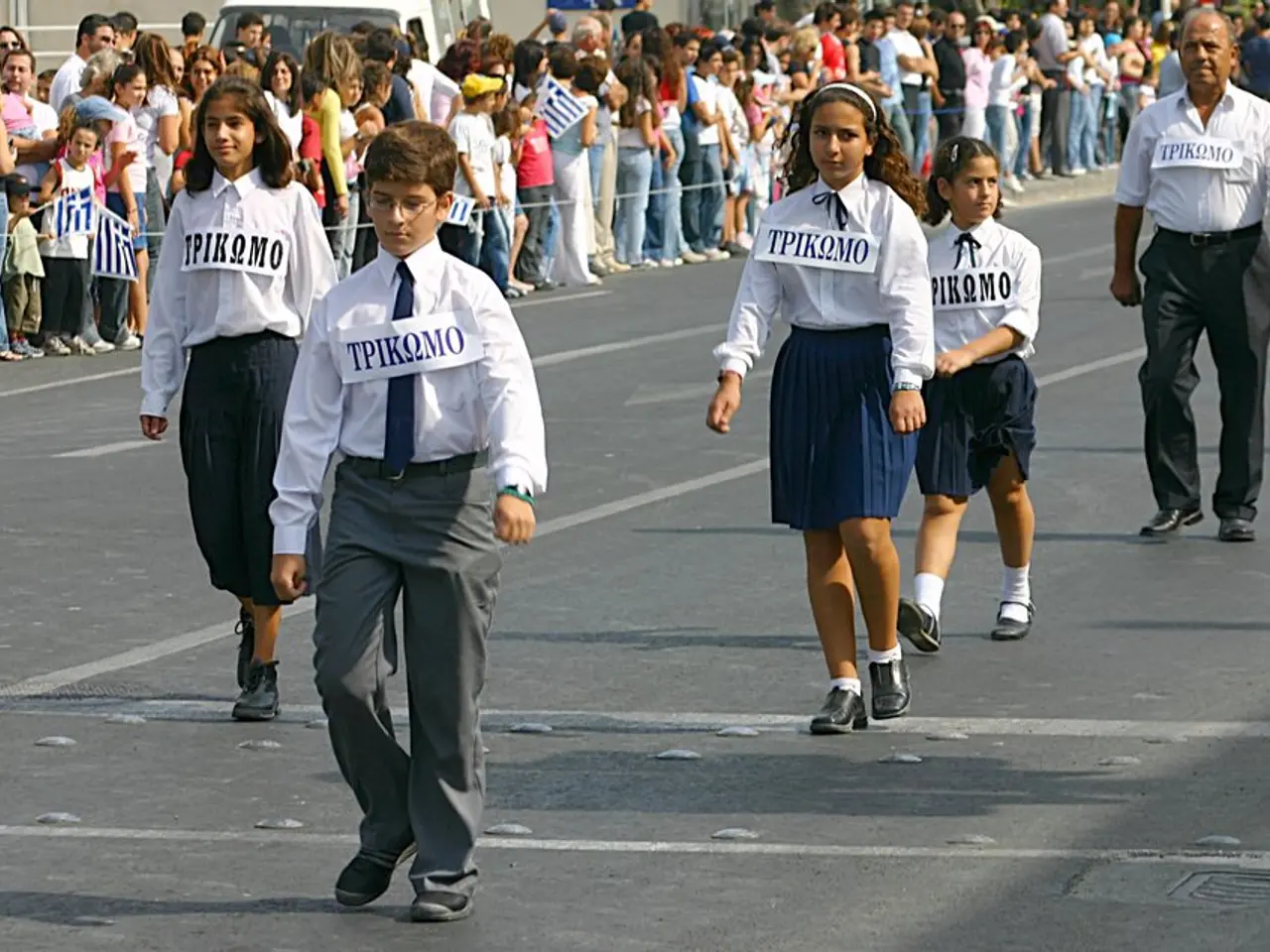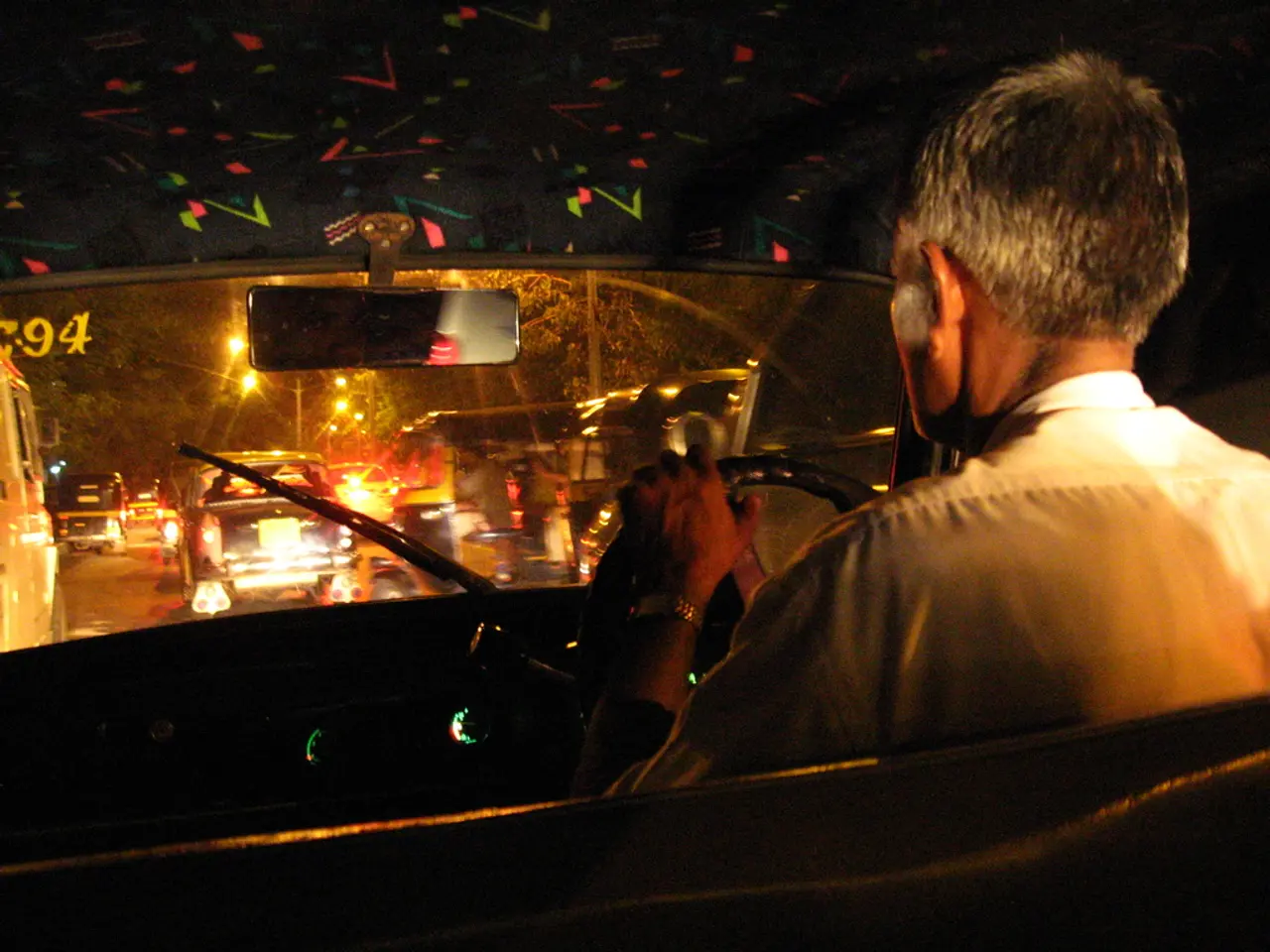Kenya's Kenya Kwanza front embarks on Sh20 million distribution of funds in support of Ruto's subsequent term in office
The Kenya Kwanza empowerment program, a government-backed initiative aimed at economically uplifting youth and women, has been a significant part of the ruling coalition's 2027 General Election campaign strategy. The program, which focuses on boosting small and medium-sized enterprises at the grassroots level, has been met with both support and criticism.
During a political tour in Nakuru and Baringo counties, led by Deputy President Kithure Kindiki, several politicians made contributions to the program. President William Ruto contributed Sh3 million in Kabarnet, while Kindiki himself announced a contribution of Sh1.2 million. MPs such as Bahati's Irene Njoki, Njoro's Charity Kathambi, and Molo's Kimani Kuria also made substantial contributions.
The event in Kabarnet, Baringo Central, raised over Sh10.2 million. Nakuru Governor Susan Kihika initially offered Sh500,000, which was later pushed up to Sh700,000 by National Assembly Majority Leader Kimani Ichung'wah. Ichung'wah himself gave Sh500,000 during the event, and other contributors included MPs like David Gikaria, Mark Nyamita, Liza Chelule, and former Gender CS Aisha Jumwa.
However, the program has generated significant controversy and backlash. Many beneficiaries claim the financial support promised at empowerment events is minimal or does not materialize as expected. Reports suggest that people have received as little as Ksh.64 or small sums like Ksh.2,000 being distributed among groups of many individuals, leading to widespread disillusionment among intended recipients.
Legal challenges have also emerged, with lawsuits filed seeking accountability and transparency on the source and management of the funds handed out. These suits accuse Kenya Kwanza leaders, including Deputy President Kindiki and other top officials, of violating ethics and integrity laws, alleging that the empowerment disbursements might constitute bribery aimed at influencing voters ahead of the elections.
Despite the criticisms and legal scrutiny, Kenya Kwanza leaders affirm their commitment to the empowerment drive. Deputy President Kindiki has publicly defended the program, emphasizing its goal to economically boost small businesses at the grassroots and pledging to continue the initiative regardless of detractors.
Moreover, Kindiki announced plans to revive Kazi Mtaani under a climate-focused model and announced plans to employ 70,000 teachers. The Kenya Kwanza campaign caravan is scheduled to continue on Saturday in Molo.
The effectiveness and integrity of the Kenya Kwanza empowerment program remain contested amidst these tensions. The program's goal to deliver tangible economic benefits to the populace under the banner of "empowerment" and "bottom-up economics" continues to be a central theme in political rallies and public forums, aiming to galvanize support ahead of the elections.
[1] [Source 1] [2] [Source 2] [3] [Source 3] [5] [Source 5]
- The Kenya Kwanza empowerment program, amidst controversy and legal scrutiny, has been a central topic in both sports and general news, with critics raising concerns about the transparency and effectiveness of the initiative.
- Departing from the usual political discussion about policy-and-legislation and general news, this election season in Kenya also includes debates about the economic empowerment program, including sports shows discussing contributions by politicians during their tours.






